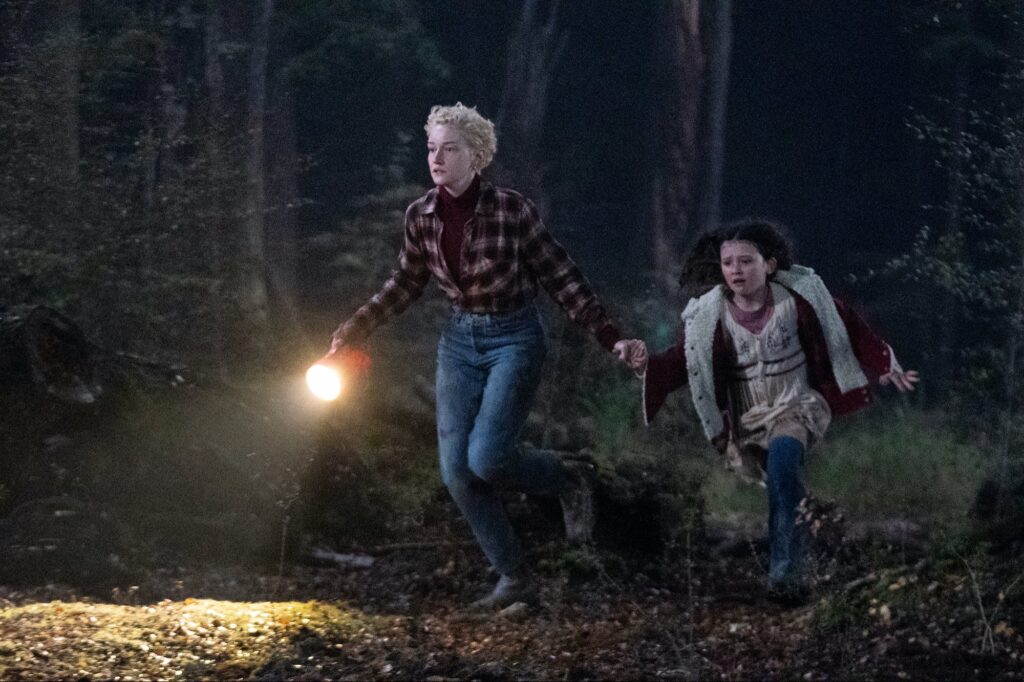“Scaring people is addictive — it’s an addictive drug.”
So says Leigh Whannell, the director and co-writer of the new movie Wolf Man, which opens on Jan.17. I saw an advanced screening, and if you want to add some nightmares to your playlist of boring dreams, I highly recommend checking it out yourself. This is a seriously freaky take on the classic furry beast. Teen Wolf it ain’t.
Horror film fans know Whannell as the co-creator of Saw and its iconic main character, that fun party guy Jigsaw. Whannell’s extensive film credits also include writing the recent Invisible Man remake starring Elizabeth Moss, the Insidious franchise, and a ton of other gore-tastic stuff. The man really knows how to make an effed-up flick.
I spoke with Whannell about Wolf Man and his blood-curdling career on the new episode of How Success Happens. I wanted to find out how he’s gotten so damn good at monetizing terror and also to ask him point blank, “What the hell is wrong with you?” Listen to the entire conversation below or on the platform of your choice. Enjoy the nightmares!
On monetizing terror
“ Well, there was never a decision to monetize terror. After I finished film school, where I met Saw co-creator James Wan, he and I were dedicated horror fanatics, but we certainly didn’t see any money in it. We just wanted to make a film, and the horror genre is not only one we love, but it’s also so friendly to first-time filmmakers and low-budget filmmakers. You don’t need a celebrity to play the lead. You don’t need a lot of whizbang effects — horror is something that you can do on a shoestring budget. And we continue to love horror and we just kept going. Scaring people, I guess, is the same feeling that a comedian gets when they get a really big laugh. I have dragged an involuntary audible response out of human beings without their consent! To me, a scream and a laugh are just different sides of the same coin. It’s very addictive. It’s an addictive drug.”
Related: ‘I Lost My Mind’: Erin Andrews Explains What It’s Like to Be in the Middle of the Taylor Swift Effect
On freaking himself out
“ There have been a couple of moments in the early days of writing these films where I was like, ‘I need professional help.’ But with fictional characters, you can kill them off without guilt. I get to murder people and not have to pay a penalty, so it’s a lot of fun. And with Wolf Man, I was thinking about what I hadn’t seen with this character — I felt like it needed something a little bit new, a little drop of fresh blood. I wanted to make something really terrifying and intense.”
On moving on from the Saw franchise
“It is very strange to have sat in my bedroom in Melbourne, Australia, and created a character, and then this thing that I’ve created now belongs to other people. If I see a billboard for another Saw movie that I had nothing to do with, that is a very strange experience. I can only liken it maybe to watching your child leave the nest and go on and do something. You’re like, ‘Well, I brought this person into the world as best I could, but now they’re on trial for murder or they’re the CEO of a Fortune 500 company!’ It’s like, ‘You’re your own person, but I had a lot to do with you existing.’ There have been moments where I don’t love where the franchise has gone, but I feel like it doesn’t belong to me anymore. This happens a lot in the movie world. You create something, but you don’t often own the rights to it. It’s a very strange experience, but look, it’s not a bad experience. The Saw movies mean a lot to people, so I’m thankful. I probably wouldn’t be sitting here talking to you if those movies hadn’t made their way into people’s hearts, you know?”
Subscribe to How Success Happens: Apple | Spotify | YouTube
About How Success Happens
Each episode of How Success Happens shares the inspiring, entertaining, and unexpected journeys that influential leaders in business, the arts, and sports traveled on their way to becoming household names. It’s a reminder that behind every big-time career, there is a person who persisted in the face of self-doubt, failure, and anything else that got thrown in their way.
Read the full article here












